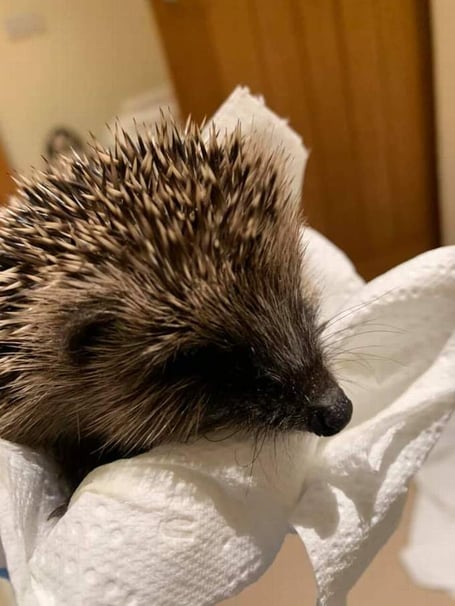Two children in Okehampton rescued a hedgehog trapped in gardener’s string this week, which has prompted a hedgehog rescue organisation to remind gardeners to pick up their litter.
The hedgehog, now nicknamed Deedee, was discovered with gardener’s string wrapped tightly around her neck and was quickly taken to Greatfield Hedgehog Rescue, who successfully removed the string. She was placed in an incubator and spent her first night on a heat mat in an indoor cage.
Staff also discovered that Deedee was underweight, weighing 124g (a healthy hedgehog should weigh between 300-500g) and hand-fed her special hedgehog food to help her gain weight.
She is recovering well and now being monitored for signs of necrosis, a condition which occurs when there is not enough bloodflow to living tissue.
Pam Pemberton, founder of Greatfield Hedgehog Rescue, said: ‘She’s doing very well. She’s now 150g and she’s been taken off hand-feeding and she’s now feeding herself.’
The incident has raised concerns over the number of wild animals which have been trapped and injured in litter. Ms Pemberton said that had Deedee not been brought in when she had it is likely she would not have survived. She emphasised the importance of cleaning up rubbish.
‘It’s absolutely vital,’ she said. ‘They can get into empty cans or bottles and it’s not only hedgehogs. The problem with necrosis is gangrene. When that happens there’s nothing we can do. We have to put the animal down.’
Deedee’s plight has inspired Greatfield Hedgehog Rescue to send out a letter to all allotment owners in the area informing them of the dangers of leaving out rubbish.
Ms Pemberton added: ‘There is now a letter being sent around to all the allotments warning them about the dangers of litter so it’s great that something has come out of this.’
Hedgehogs can also get caught in netting, yoghurt pots and face masks, and can become trapped in drainage holes and sheds if there is no escape route.
The RSPCA estimates it receives around 5,000 calls each year about wild animals trapped in or injured by litter.This is approximately 14 calls every day.





Comments
This article has no comments yet. Be the first to leave a comment.